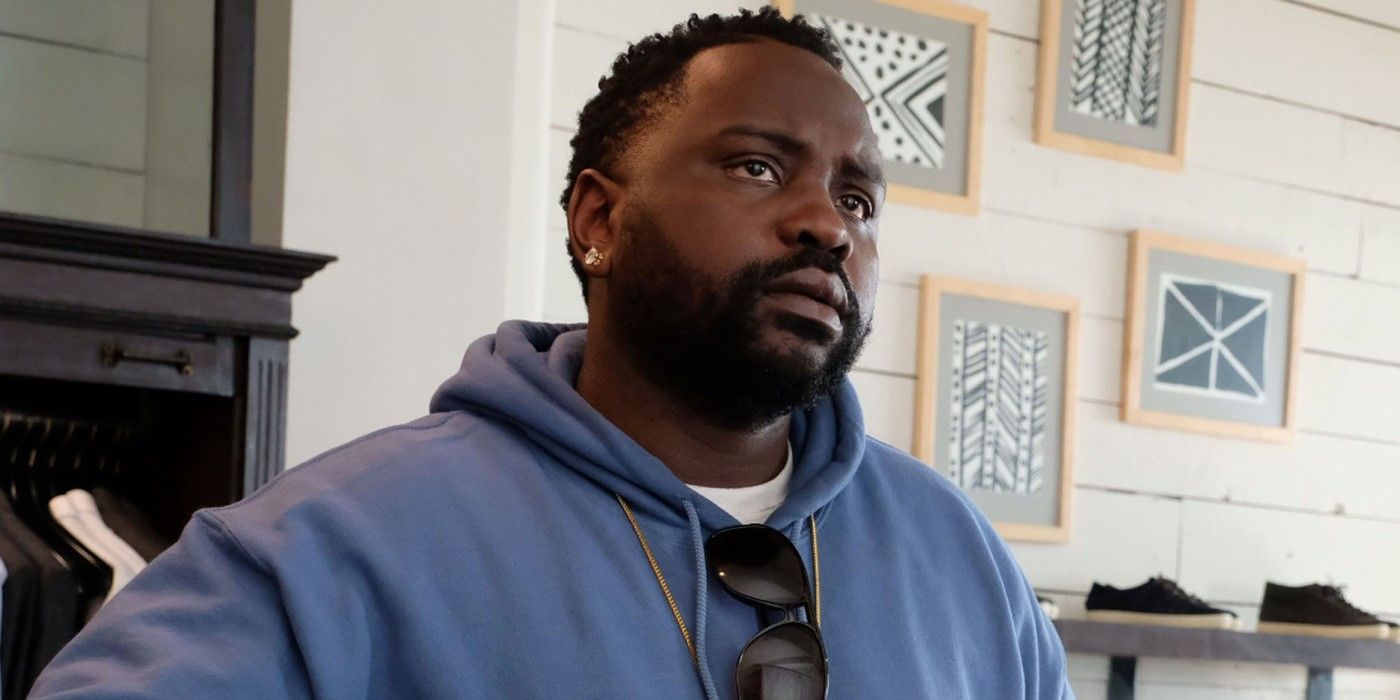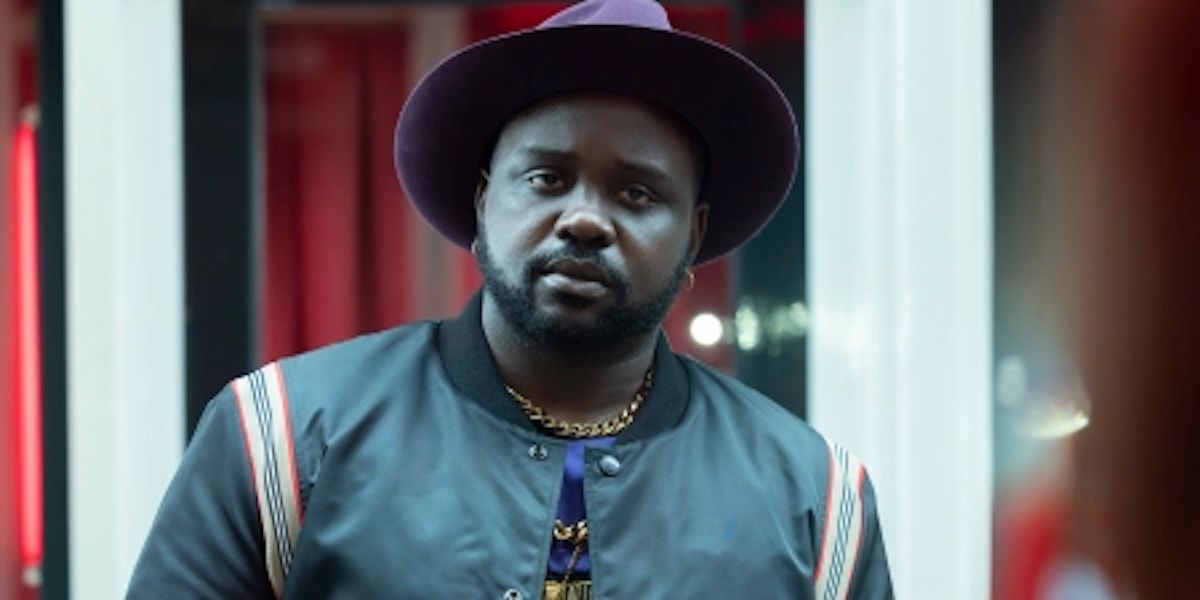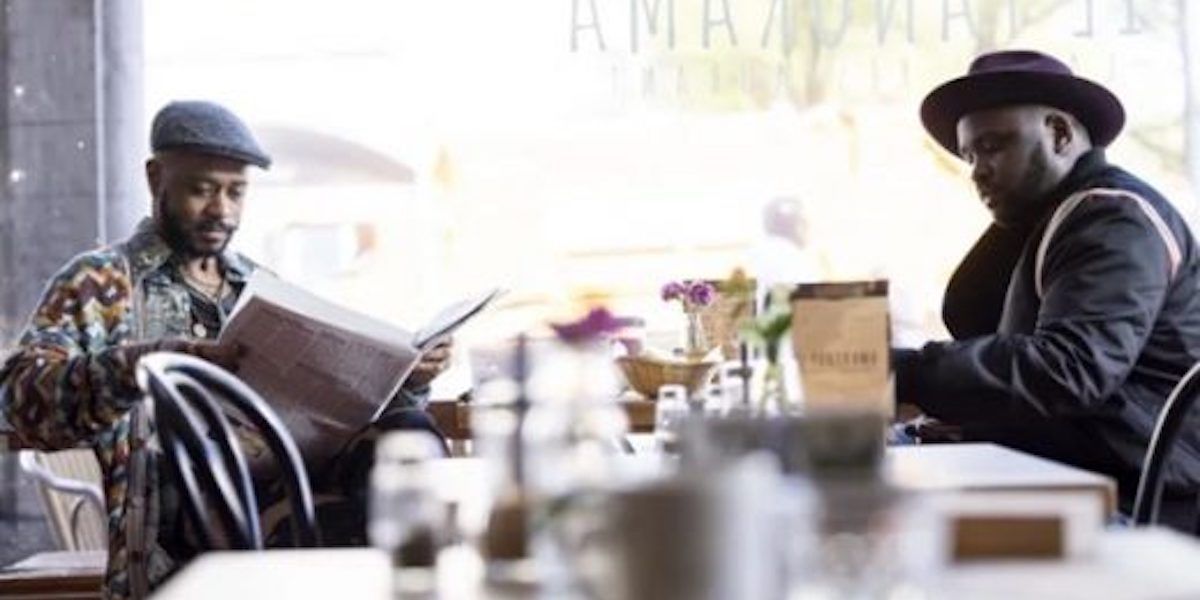The most recent episode of the final season of the hit series Atlanta, simply titled 'New Jazz,' is not just one of the show's best for its sense of humor but for how it centered on a perpetually remarkable Brian Tyree Henry as the enigmatic Alfred 'Paper Boi' Miles. It is part of a trajectory of episodes that have been sprinkled throughout the show’s run that uncover what troubles the rapper underneath all his bravado. Specifically, the episodes that have always stood out the most were ’Barbershop’ and ‘Woods’ which similarly centered on Paper Boi facing a challenge that can often turn dark. Uniting them all is the irreplaceable Henry’s sense of presence and vulnerability he conveys as an actor, an element of the show that would not be the same without him. It makes him one of the best parts of the series and one of the best actors working today for all he manages to do in even the simplest of moments.
In ‘New Jazz,’ we see Paper Boi and Darius (LaKeith Stanfield) deciding to take a bit of a trip. This is something I mean in multiple senses of the word as the duo not only roams the city of Amsterdam but also do so while on what Darius calls “spiritual expanding apparatuses” which is his coy way of referring to drugs. Specifically, it is what he explains is a “Nepalese space cake,” a concoction of weed mixed with Nepalese hallucinogenic honey. Or, at least this is what he thinks it is as he isn’t entirely sure. After initially peacefully wandering around while waiting for the drug to kick in, Paper Boi becomes separated from Darius. His blissful day is shattered as a group of youth accost him on the street, getting more and more aggressive until he is forced to duck into a side building in order to escape. It is reminiscent of what happened in ‘Woods’ when he was robbed by kids and had to flee into the forest while being shot at. This likely was in the back of Paper Boi’s mind, something Henry conveys in the immediate way he tries to get away before anything similar can happen to him again.
This is only the beginning of his increasingly bad trip, something the show conveys with a grounded sense of reality that gives the actor all the room he needs to shine. Eschewing the typical warping of visuals to indicate a character is getting high, we instead focus on his emotional state. The key to this is when he wanders into an art gallery and meets a stranger named Lorraine. She is a humorous yet chaotic presence who immediately takes an interest in Paper Boi in a wonderfully charismatic performance by Ava Grey. As Lorraine challenges the rapper about his greatest insecurities and fears, we see how the two play off each other perfectly to draw out more of who their characters are. In particular, we see how often shy and insecure Paper Boi can be when juxtaposed against the suave, confident Lorraine. Henry brings this to life with a precision that is felt in every aspect of his performance. From the frequently halted manner in which he speaks with an uncertainty woven into his tone to this closed in posture and searching eyes, we begin to feel how vulnerable it is. Even his laugh and charm deepen this, quickly shifting into deflection when he is put on the defensive.
This has been the most intriguing aspect that Henry has brought to Paper Boi through the show. You can see it all the way back in ‘Barbershop’ where he simply wanted to get a haircut though was roped into increasingly escalating catastrophes that he seemed unable to escape. However much he desired to just get out of the situation, Henry showed the character’s sense of sheepishness that held him back from doing so. It is all part of how he will show the truth underneath Paper Boi’s tough exterior, letting his guard down piece by piece when confronted with hard truths. In particular, when Lorraine reads him like a book at the end of the episode, we see him literally fall into a trembling mess that turns him into the man he himself walked past back at the beginning. As we hear the words “don’t be like him” echoing around before he passes out, the overwhelming yet incisive work of Henry all pays off as the pieces come together. Once again, the fear the rapper tries so hard to keep bottled up has risen to the surface despite his best efforts. The fact that Henry can hit all these various emotional beats with such quiet confidence is incredible to witness. To be able to go from a bizarre scene where Liam Neeson makes an appearance as himself to a more understated one where he captures the more nuanced, internal strife of Paper Boi shows just how good Henry is.
From the way he creates barriers between himself and others to the manner in which he tries to brush off anyone who tries to get through to him, everything he does reveals just how intriguing the character is. It shows us how, behind all the brash confidence, he is often alone and uncertain about his future. While he is doing better than he ever has with his music, there is still a sense that he might not be fully in control and instead be at the behest of others. The strength of his performance is what makes this all work, serving as a grounding bright spot amidst the borderline surrealism of the narrative. It shows how he can do a whole lot with very little, speaking volumes with a small glance or chuckle that masks a deeper sadness that has been felt throughout the series. It is his dedication that makes the show double as a character study that has been gently unfolding in its remaining episodes. In Henry’s final speech of the episode where Paper Boi questions Donald Glover’s Earn about whether he has the masters to his own music, he just sounds tired and beaten down by it all. We feel in every word how fame, wealth, and success has not brought him the sense of peace he is still desperately reaching for. It is through Henry's delicate, dedicated work that this continually hits home.



